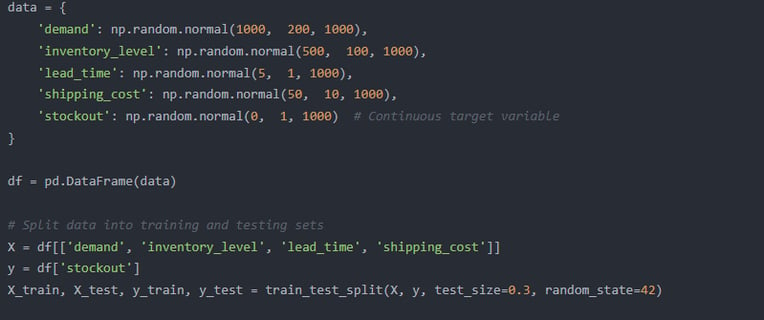Keith Thomas
Name: Keith Thomas
Role: AI-Driven Supply Chain Optimization Specialist
Expertise: Enhancing Inventory Management and Logistics Scheduling with AI
Professional Summary:
Keith Thomas is a visionary professional in the field of AI-driven smart supply chain management, specializing in leveraging artificial intelligence to optimize inventory management and logistics scheduling. With a strong foundation in data science, machine learning, and supply chain operations, Keith is dedicated to transforming traditional supply chain processes by integrating cutting-edge AI technologies. His work enables businesses to reduce costs, improve efficiency, and enhance customer satisfaction through smarter, data-driven decision-making.
Key Competencies:
AI-Powered Inventory Optimization:
Develops advanced AI algorithms to analyze demand patterns, forecast inventory needs, and optimize stock levels, minimizing overstocking and stockouts.
Utilizes machine learning to predict market trends and adjust inventory strategies dynamically.
Intelligent Logistics Scheduling:
Designs AI-driven systems to optimize route planning, vehicle allocation, and delivery schedules, reducing transportation costs and improving delivery times.
Implements real-time tracking and predictive analytics to enhance logistics efficiency and reliability.
Data Integration & Analytics:
Proficient in integrating and analyzing data from multiple sources, including sales data, supplier information, and IoT sensors, to provide actionable insights.
Builds scalable data pipelines to process and interpret large datasets for supply chain optimization.
Machine Learning Expertise:
Builds and optimizes machine learning models for supply chain applications, including demand forecasting, inventory classification, and logistics optimization.
Stays updated with the latest AI advancements to drive innovation in supply chain management.
Cross-Functional Collaboration:
Collaborates with supply chain managers, logistics teams, and business leaders to align AI solutions with organizational goals.
Provides training and support to ensure the successful adoption of AI tools.
Career Highlights:
Developed an AI-powered inventory management system that reduced inventory holding costs by 20% for a leading retail company.
Designed a logistics scheduling framework that improved on-time delivery rates by 15% for a global e-commerce platform.
Published influential research on AI applications in supply chain management, earning recognition at international logistics conferences.
Personal Statement:
"I am passionate about leveraging AI to revolutionize supply chain management, enabling businesses to operate more efficiently and responsively. My mission is to create data-driven solutions that optimize inventory and logistics, driving cost savings and customer satisfaction."






Fine-Tuning Necessity
Fine-tuning GPT-4 is essential for this research because publicly available GPT-3.5 lacks the specialized capabilities required for analyzing complex supply chain data and generating optimized logistics plans. Supply chain optimization involves highly domain-specific knowledge, intricate demand patterns, and nuanced logistics strategies that general-purpose models like GPT-3.5 cannot adequately address. Fine-tuning GPT-4 allows the model to learn from supply chain datasets, adapt to the unique challenges of the domain, and provide more accurate and actionable insights. This level of customization is critical for advancing AI’s role in supply chain management and ensuring its practical utility in real-world scenarios.
Past Research
To better understand the context of this submission, I recommend reviewing my previous work on the application of AI in supply chain optimization, particularly the study titled "Enhancing Supply Chain Efficiency Using Machine Learning Models." This research explored the use of predictive analytics and optimization algorithms for improving inventory management and logistics scheduling. Additionally, my paper "Adapting Large Language Models for Domain-Specific Applications in Supply Chain Management" provides insights into the fine-tuning process and its potential to enhance model performance in specialized fields.

